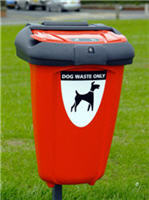Air pollution, even at levels generally considered safe by federal regulations, increases the risk of stroke by 34 percent, according to researchers from Beth Israel Deaconess Medical Center, a patient care, teaching and research affiliate of Harvard Medical School.
A recent study found that children living near coal-tar-sealed pavement are likely to receive a far higher dose of carcinogenic polycyclic aromatic hydrocarbons (PAHs) from incidental ingestion of house dust than do children living near unsealed pavement, and that dose is more than two times higher than the PAH dose children are estimated to receive from food.
In an effort to protect public health, the EPA completed an assessment of the popular dry cleaning solvent - perc. The final assessment determined that perc is a "likely human carcinogen."
Oregon Potato Company failed to report an anhydrous ammonia release at their facility in Warden, Wash., and will pay the U.S. Environmental Protection Agency (EPA) a $66,235 penalty.
The U.S. Environmental Protection Agency (EPA) is providing a $25,000 grant to the Comite de Apoyo a los Trabajadores Agrícolas (CATA) to reduce exposure to pesticides for farm workers in southern New Jersey.
The U.S. Environmental Protection Agency (EPA) is encouraging Americans this January, as part of National Radon Action Month, to take simple and affordable steps to test their homes for harmful levels of radon gas.
After the death of a newborn Missouri boy who consumed Enfamil Newborn powdered infant formula, Walmart pulled the product from more than 3,000 of its stores nationwide.
Large forest regions in Canada are apparently about to experience rapid change. Based on models, scientists can now show that there are threshold values for wildfires just like there are for epidemics. Large areas of Canada are apparently approaching this threshold value and may in future exceed it due to climate change.
With news this week of additional radioactive leaks from Fukushima nuclear power plants, the impact on the ocean of releases of radioactivity from the plants remains unclear. But a new study by U.S. and Japanese researchers analyzes the levels of radioactivity discharged from the facility in the first four months after the accident and draws some basic conclusions about the history of contaminant releases to the ocean.
Soil in the project area is contaminated with mercury, arsenic, polycyclic biphenyls (PCB's), lead, DDT, dioxins and a host of other chemicals.
Up to 35,700 premature deaths can be prevented in the United States every year if the Environmental Protection Agency (EPA) strengthens the health standards for fine particulate matter—also known as soot—according to a new report, Sick of Soot: How the EPA Can Save Lives by Cleaning Up Fine Particle Pollution, prepared by the American Lung Association, Clean Air Task Force, and Earthjustice.
Kawasaki Disease (KD) is a severe childhood disease that many parents, even some doctors, mistake for an inconsequential viral infection. In fact, if not diagnosed or treated in time, it can lead to irreversible heart damage. After 50 years of research, including genetic studies, scientists have been unable to pinpoint the cause of the disease.

There’s an unsuspecting culprit contributing to U.S. water pollution: pet poop.